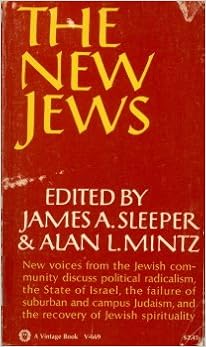Puritans, Hebrews, and all of us

Deacon Samuel Chapin, a founder of my hometown of Springfield MA in 1636, by sculptor August St. Gaudens, near the library that I used, 1962-65.
Ever since the early 20th-Century satirist H. L. Mencken announced that Puritans and their American legatees were animated by a “haunting fear that someone, somewhere, may be happy,” most Americans have been happy enough to blame Puritans for cancel culture, hypocrisy, mistrust, and even for indecency and violence. Some Americans even commercialize Puritanism’s lurid excesses, as if doing so might help us to feel better about ourselves.
But what if Puritans knew a lot about our divided hearts, and were frank about it, in ways that today’s moralists, Freudians, and post-Freudians don’t quite acknowledge? What if their theologically fixed prejudices about Jews’ destiny included reverence for Jews’ Hebrew ancestors and their descendants? Growing up as I did in a crossroads between those two traditions, I’ve made some informed observations about Israel’s and American Calvinists’ continuing co-dependency today. (Here’s a photo of me standing at one of those crossroads):

Interviewing a follower of the Satmar Hasidic (orthodox Jewish) grand rabbi, Brooklyn, 1979
The deepest and most comprehensive of my reckonings with this are in two of the essays below — “America’s Puritan heritage holds truths that few of us want to hear” and “Puritans and Hebrews, American Brethren.” But please read the first essays to see the current contexts of this.
What IS it about ‘the Jews,’ Americans, and Israel/Palestine? Autumn, 2024. jimsleeper.com » What is it about ‘the Jews’, American Protestants, and Israel/Palestine?
Israel and American Puritans: A Dangerous Historical Romance, Salon, March 31, 2024.
How I escaped Puritanism’s creepy side after encountering its nobler side. Huffington Post, 2015
We’re commercializing our disdain for the Puritans because we’re getting desperate about ourselves. DEMOCRACY Journal, 2015
America’s Puritan heritage holds truths that few of us want to hear but should. DEMOCRACY journal, 2015 (adapted by The Atlantic magazine)
Puritans were hypocritical about capitalism because they were deeply uncomfortable with it. Los Angeles Review of Books, February, 2019. (This review of Daniel Rodgers’ As a City on a Hill shows that, almost despite themselves, but also thanks to what was wise and indomitable in themselves, John Winthrop’s Massachusetts Puritans recognized the tensions between public authority and personal autonomy and between marketing and moralizing.)
‘Diversity,’ Prep Schools, and Puritanical displacements of class guilt. The Washington Monthly, July, 2015 At some elite schools and colleges, excessive pietistic policies against racism and sexism amount to little more than guilt-laundering for the privileged.
Puritans and Hebrews: American brethren, even in the idioms of George W. Bush and Barack Obama. (How did that happen? I offered these answers in 2009 in an essay for the World Affairs Journal, which later vanished in a puff of smoke, along with its archives. So I recycled the core of it into the following longer, more far-ranging essay in Tikkun and openDemocracy.)
Some evangelical Christians and some too-clever-by-half Jews have disrupted the Puritan-Hebrew entente within which American Jews have long enjoyed full citizenship and security, as I warned in Tikkun magazine and on the British website openDemocracy in 2019.
Faith misplaced: Some neoconservatives almost worship America, The Boston Globe, August 19, 2007. A review of David Gelernter’s Americanism: The Fourth Great Western Religion
Partly because of this troubling development, It Can Happen Here. In 2018, a moment in Berlin stirred my darkest intuitions about Trump, which I expressed in The Washington Monthly, June 22, 2018. This was picked up by several other sites, including Diane Ravitch’s blog, where it prompted useful readers’ comments.
Jews have had little to fear from Black anti-Semitism, I told an audience at New York’s 92nd Street Y and said again in a column for the Forward newspaper in 2011, even though, as I had reminded readers of The Nation in 1991, black anti-Semitism is dangerous in American democracy and has sometimes been wrongly tolerated on the left.
The New Jews, 1971: A totally surprising blast from my past. A belated review by Yehudah Mirsky, Jewish Ideas Daily, Feb. 9, 2011.

In the summer of 1968, between my junior and senior years in college, I conceived an anthology of essays by young religious Jewish “radicals” such as myself at that time. Co-editor Alan Mintz and I recruited contributors and published The New Jews as a Vintage paperback in 1971. Imagine my surprise (and embarrassment, since my essays in the volume are jejune) when a review appeared last week, prompted by the 40th anniversary of the book’s publication. My own essays were paltry, but Yehudah Mirsky rightly observed that some essays were lovely, some profound, and that some had stood up well.
Israel’s Tragedy, American Neoconservatives’ Folly
.israelipalestinian.procon.org